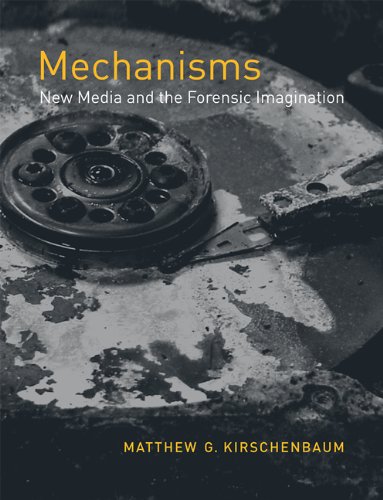

Most ebook files are in PDF format, so you can easily read them using various software such as Foxit Reader or directly on the Google Chrome browser.
Some ebook files are released by publishers in other formats such as .awz, .mobi, .epub, .fb2, etc. You may need to install specific software to read these formats on mobile/PC, such as Calibre.
Please read the tutorial at this link: https://ebookbell.com/faq
We offer FREE conversion to the popular formats you request; however, this may take some time. Therefore, right after payment, please email us, and we will try to provide the service as quickly as possible.
For some exceptional file formats or broken links (if any), please refrain from opening any disputes. Instead, email us first, and we will try to assist within a maximum of 6 hours.
EbookBell Team

4.0
66 reviewsIn Mechanisms, Matthew Kirschenbaum examines new media and electronic writing against the textual and technological primitives that govern writing, inscription, and textual transmission in all media: erasure, variability, repeatability, and survivability. Mechanisms is the first book in its field to devote significant attention to storage--the hard drive in particular--arguing that understanding the affordances of storage devices is essential to understanding new media. Drawing a distinction between "forensic materiality" and "formal materiality," Kirschenbaum uses applied computer forensics techniques in his study of new media works. Just as the humanities discipline of textual studies examines books as physical objects and traces different variants of texts, computer forensics encourage us to perceive new media in terms of specific versions, platforms, systems, and devices. Kirschenbaum demonstrates these techniques in media-specific readings of three landmark works of new media and electronic literature, all from the formative era of personal computing: the interactive fiction game Mystery House, Michael Joyce's Afternoon: A Story, and William Gibson's electronic poem "Agrippa."